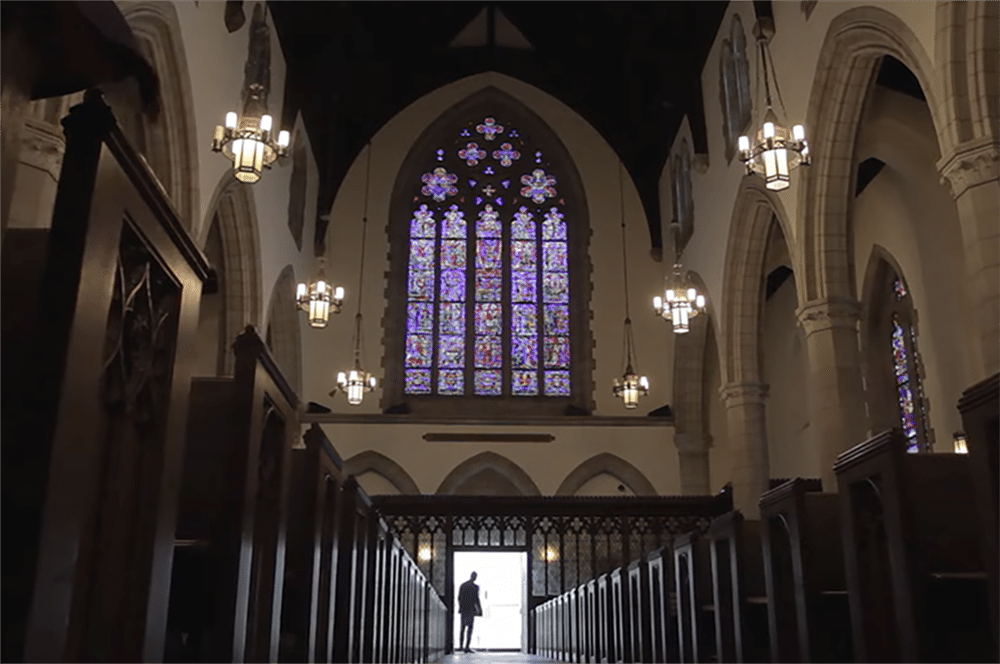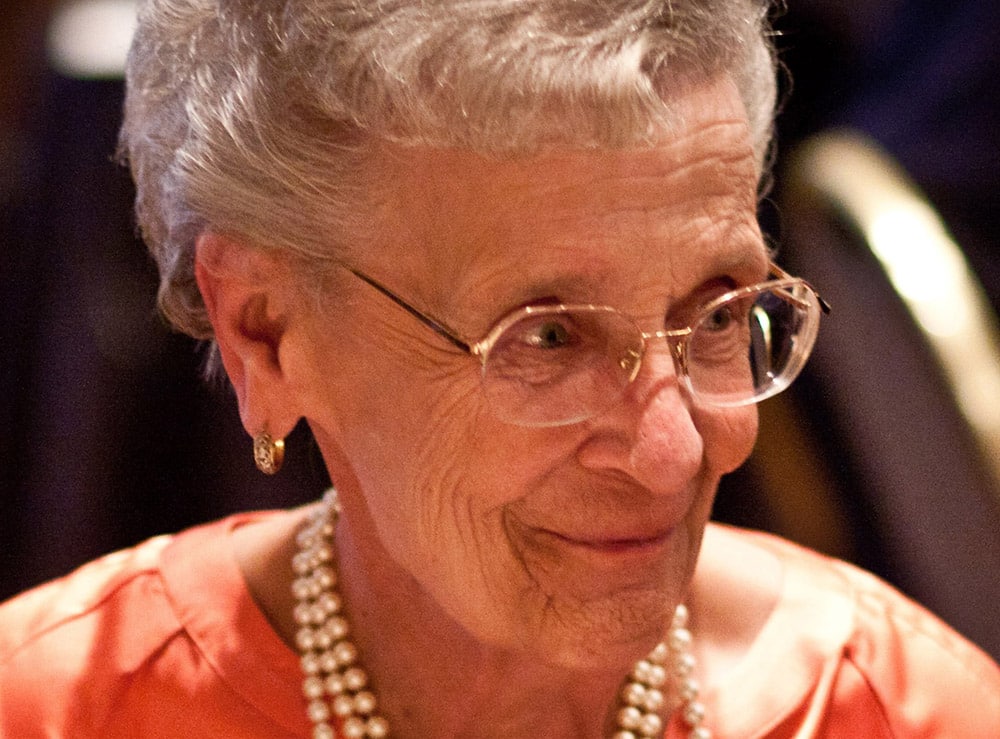
I’ve been teaching New York City high school and college students for two decades now. And for two decades, I’ve been asked the same question: « Is it OK to use ‘I’ in school writing? » The poor student has inevitably been told that first-person references weaken argumentative claims. I would actually argue that in 2024 the only thing all students — all Americans — could use a little bit more of is humility, circumspection and nuance.
In a word: doubt.
It has been 20 years since John Patrick Shanley’s explosive play of the same name premiered on Broadway, starring Cherry Jones and Brian F. O’Byrne. This February, the play returns to the Great White Way, in a revival starring Liev Schreiber as Father Flynn and Tyne Daly as Sister Aloysius. So it’s a good time to revisit this Pulitzer Prize winner (later made into an Oscar-nominated film) and the era in which Shanley wrote it.
Over the lifespan of this very Catholic play, at the center of which is a simmering conflict between a reform-minded priest and a traditionally-inclined nun, what has happened in the American Catholic Church? Has the play aged well? Or are there moments that may now make viewers cringe — or worse?
Advertisement
« It’s getting harder and harder in this society to find a place for spacious, true intellectual exchange, » Shanley told The New York Times when the play was first released. « It’s all becoming about who won the argument, which is just moronic. » He added, « There is no room or value placed on doubt, which is one of the hallmarks of the wise man. » Sadly, this may be more true in 2024 than it was in 2004.
At the same time, there are moments in Shanley’s play that read quite differently today, for better or worse. Shanley has talked often about writing « Doubt » (subtitled « a parable ») during the run-up to the disastrous Iraq War. But Americans had also begun learning about and processing the worst of the church abuse scandals at the time, including The Boston Globe’s shocking 2002 revelations, on which the film « Spotlight » was based. Allegations of cover-up, and parish-hopping by predator priests, are also at the center of « Doubt, » which is set in 1964.
« What do you do when you’re not sure? » Father Flynn asks the audience in the play’s opening sermon. « Last year when President Kennedy was assassinated, who among us did not experience the most profound disorientation? »
Shanley has called this era a time « when not just me but the whole world seemed to be going through some kind of vast puberty. » In 2004, he acknowledged that key elements of the plot of « Doubt » were rooted in personal experience.
« A child in my family was molested by a priest, » Shanley told the Times. « The parents went first to the local level, then up the chain of command to a highly placed church official, who took them by the hands and said: ‘I’m so sorry this happened to you. I will take care of it.’ And then he promoted » the abusive priest.
As similar events unfold in « Doubt, » Sister Aloysius emerges as brave, perhaps even heroic. And yet some audience members in 2024 might feel these allegations are a peripheral matter in the larger conflict between the nun and priest.
Then there is the mother of the (allegedly) abused boy.
Mrs. Muller is African American and new to this Bronx parish, which is heavily Irish and Italian. She clearly loves her son, and wants to give him as many opportunities as 1960s America (or at least Catholic New York City) will allow. At the same time, some of Mrs. Muller’s lines fall somewhere between passive and neglectful; perhaps even complicit. Still, she gets some of the play’s most powerful moments.
« How come the priest didn’t get kicked off the priesthood? » she asks at one point. « You know why that is? … You’re just finding out about it, but that’s the way it is and the way it’s been, Sister. You’re not going against no man in a robe and win, Sister. »
As audiences and critics debate what ideas may or may not remain relevant in « Doubt, » one aspect of the stage play that is worth emphasizing — especially in light of the movie, with its expanded cast — is that only four characters appear, and three are women. These are the people who’ve faced the most adversity within a deeply unbalanced system. Perhaps for this reason, they have developed the strength and persistence to serve as a breath of fresh air, represented by the wind storms that send the Irish janitor out to the courtyard to clean up scattered tree limbs. But beware: the same wind storms, Sister Aloysius notes, « tripped » a fellow nun, who « fell on her face. »
The role of women in the church was a prominent topic at the Vatican’s recent synod on synodality. Pope Francis — himself often described as a breath of fresh air — has even called for a « demasculinized » church, as well as more listening, as opposed to more talking, pontificating.
It’s no accident that the only male character in « Doubt » is also the only one we see preaching. That is, at least, when he’s not busy conspicuously jotting down sermon ideas, even if it interrupts someone trying to relay an important point to him.
But as flawed as Father Flynn may be, no one in « Doubt » emerges as an uncomplicated hero. Which may be the most crucial — and timeless — lesson in this « parable. »
« It is doubt (so often initially experienced as weakness) that changes things, » Shanley wrote in a preface to the play. « … Doubt requires more courage than conviction does … because conviction is a resting place and doubt is infinite — it is a passionate exercise. »
This is why Sister James, the young nun and teacher, may be this play’s most important character: she carefully listens, considering the arguments both Father Flynn and Sister Aloysius make. And yet, she’s still stumped. Unsure. But Sister James keeps listening. Right up to the very end of the play, when the lights fade.
Maybe that’s one final thing we can take away from « Doubt »: That sitting quietly in the dark can still be a courageous act, a passionate exercise.

